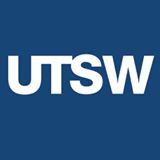预约演示
更新于:2025-09-23

Gilead Sciences, Inc.
更新于:2025-09-23
概览
标签
肿瘤
免疫系统疾病
呼吸系统疾病
小分子化药
ADC
单克隆抗体
疾病领域得分
一眼洞穿机构专注的疾病领域
暂无数据
技术平台
公司药物应用最多的技术
暂无数据
靶点
公司最常开发的靶点
暂无数据
| 排名前五的药物类型 | 数量 |
|---|---|
| 小分子化药 | 91 |
| 单克隆抗体 | 13 |
| 自体CAR-T | 10 |
| 化学药 | 7 |
| CAR-T | 5 |
关联
159
项与 Gilead Sciences, Inc. 相关的药物靶点 |
作用机制 PPARδ激动剂 |
非在研适应症 |
最高研发阶段批准上市 |
首次获批国家/地区 美国 |
首次获批日期2024-08-14 |
作用机制 HIV-1 capsid抑制剂 |
在研适应症 |
非在研适应症- |
最高研发阶段批准上市 |
首次获批国家/地区 欧盟 [+3] |
首次获批日期2022-08-17 |
靶点 |
作用机制 PD-1抑制剂 |
在研机构 |
原研机构 |
在研适应症 |
最高研发阶段批准上市 |
首次获批国家/地区 中国 |
首次获批日期2021-08-25 |
1,375
项与 Gilead Sciences, Inc. 相关的临床试验NCT07178730
NeoAdjuvant Dynamic Marker - Adjusted Personalized Therapy Comparing Sacituzumab Govitecan+Pembrolizumab vs. SoC Chemotherapy in Clinical Stage II-III, Triple-negative Early Breast Cancer
TNBC is a heterogeneous disease with distinct pathological, genetic, and clinical features among subtypes. Treatment results for high-risk primary TNBC remain poor compared to other breast cancer subtypes. Preoperative chemotherapy is the standard of care for patients with stage II or III primary TNBC. Multiple lines of clinical evidence demonstrate that TNBC patients who achieve a pCR to NACT, (ypT0/is ypN0), have an excellent long-term prognosis. A meta-analysis of individual patient data confirmed a strong association of pCR after NACT with improved long-term event-free survival (EFS, hazard ratio [HR] 0.24) and overall survival (OS, HR 0.16) benefit. Taxane- and anthracycline-based neoadjuvant regimens generally result in pCR rates between 25-50% [REFs], whereas the addition of platinum increases pCR rates to approximately 50-55%.
The KEYNOTE-522 trial has demonstrated that the addition of the immune-checkpoint inhibitor PEM to anthracycline- (AC), taxane- and platinum-based NACT resulted in a significant increase in pCR rates to nearly 65%, associated with a significant reduction of recurrences (EFS, HR 0.65 at 5 years) and improvement of OS (HR 0.66). Based on these results, the KEYNOTE-522 regimen has been approved by the FDA and EMA and has become the standard of care for patients with stage II or III TNBC.
Despite this significant progress, two major questions remain unresolved which will be investigated in the ADAPT-TN-IV trial:
1. Do all patients require the full 6 months of NACT as per KEYNOTE-522 or is there a subgroup of patients who are sufficiently treated with 12 weeks of NACT plus PEM?
2. Can incorporation of ADCs into the KEYNOTE-522 regimen improve response and outcomes in patients without an optimal early response? The outcome of patients with residual disease after 24 weeks of NACT and PEM remains suboptimal and there is an urgent need for more effective strategies. ADCs such as SG have demonstrated superior efficacy compared to standard chemotherapy in metastatic TNBC, resulting in substantially higher response rates and improved progression-free (PFS) and OS. Combination studies of ADCs and immunotherapy in metastatic TNBC have demonstrated significant activity, suggesting possible synergistic activity It is therefore a logical next step to investigate, whether the incorporation of SG in the NACT regimen can improve pCR rates and EFS results in patients who have residual clinical disease after 12 weeks of NACT with CARBO/PAC + PEM.
The KEYNOTE-522 trial has demonstrated that the addition of the immune-checkpoint inhibitor PEM to anthracycline- (AC), taxane- and platinum-based NACT resulted in a significant increase in pCR rates to nearly 65%, associated with a significant reduction of recurrences (EFS, HR 0.65 at 5 years) and improvement of OS (HR 0.66). Based on these results, the KEYNOTE-522 regimen has been approved by the FDA and EMA and has become the standard of care for patients with stage II or III TNBC.
Despite this significant progress, two major questions remain unresolved which will be investigated in the ADAPT-TN-IV trial:
1. Do all patients require the full 6 months of NACT as per KEYNOTE-522 or is there a subgroup of patients who are sufficiently treated with 12 weeks of NACT plus PEM?
2. Can incorporation of ADCs into the KEYNOTE-522 regimen improve response and outcomes in patients without an optimal early response? The outcome of patients with residual disease after 24 weeks of NACT and PEM remains suboptimal and there is an urgent need for more effective strategies. ADCs such as SG have demonstrated superior efficacy compared to standard chemotherapy in metastatic TNBC, resulting in substantially higher response rates and improved progression-free (PFS) and OS. Combination studies of ADCs and immunotherapy in metastatic TNBC have demonstrated significant activity, suggesting possible synergistic activity It is therefore a logical next step to investigate, whether the incorporation of SG in the NACT regimen can improve pCR rates and EFS results in patients who have residual clinical disease after 12 weeks of NACT with CARBO/PAC + PEM.
开始日期2026-01-31 |
申办/合作机构 |
NCT07031219
Syndemic Triple HIV/HBV/HCV Virus Screening Via EMR Automation at Primary Care Clinics
Design:
This will be a randomized controlled cross-over trial, testing different order panels for screening blood tests for human immunodeficiency virus (HIV), hepatitis B virus (HBV), and hepatitis C virus (HCV). Study participants will be primary care providers. Participating providers will be randomized to either a control arm (no changes to currently available orders) or a triple-testing order panel intervention arm (order panel with screening tests for all three bloodborne viruses (BBVs) selected by default when a provider attempts to order a screening test for at least one BBV through the study order panels). These order panels will only be triggered if the provider orders a virus BBV screening test based on their normal practice and standard of care for their patient. Providers will see which orders are selected prior to signing (finalizing) them; therefore, this study will be unblinded. To mitigate the effect of unblinding, providers will switch arms halfway through the study, defined as 6 months or the point at which a total of 1000 patients have BBV test orders, whichever comes first.
Outcomes/endpoints:
The investigators will compare incidences of HIV, HBV, and HCV diagnoses between the two arms, estimate number of cases missed by not triple-testing, estimate laboratory costs per arm, and measure patient encounters per arm.
This will be a randomized controlled cross-over trial, testing different order panels for screening blood tests for human immunodeficiency virus (HIV), hepatitis B virus (HBV), and hepatitis C virus (HCV). Study participants will be primary care providers. Participating providers will be randomized to either a control arm (no changes to currently available orders) or a triple-testing order panel intervention arm (order panel with screening tests for all three bloodborne viruses (BBVs) selected by default when a provider attempts to order a screening test for at least one BBV through the study order panels). These order panels will only be triggered if the provider orders a virus BBV screening test based on their normal practice and standard of care for their patient. Providers will see which orders are selected prior to signing (finalizing) them; therefore, this study will be unblinded. To mitigate the effect of unblinding, providers will switch arms halfway through the study, defined as 6 months or the point at which a total of 1000 patients have BBV test orders, whichever comes first.
Outcomes/endpoints:
The investigators will compare incidences of HIV, HBV, and HCV diagnoses between the two arms, estimate number of cases missed by not triple-testing, estimate laboratory costs per arm, and measure patient encounters per arm.
开始日期2026-01-01 |
NCT03304717
Reverse Transcriptase Inhibitors in Aicardi Goutières Syndrome
The overall objectives are to explore the safety and efficacy of Reverse Transcriptase Inhibitors Tenofovir (TDF)/ Emtricitabine (FTC) administered in AGS affected children 2 to 18 years of age.
开始日期2025-12-01 |
申办/合作机构 |
100 项与 Gilead Sciences, Inc. 相关的临床结果
登录后查看更多信息
0 项与 Gilead Sciences, Inc. 相关的专利(医药)
登录后查看更多信息
2,077
项与 Gilead Sciences, Inc. 相关的文献(医药)2026-01-01·JOURNAL OF PHARMACEUTICAL AND BIOMEDICAL ANALYSIS
Unraveling the bridging region of Lenacapavir atropisomers by two-dimensional liquid chromatography
Article
作者: Carr, Gavin ; Pereira, Alban R ; Adhikari, Sarju ; Foti, Chris ; Shen, Yi
Atropisomers are stereoisomers that arise from restricted bond rotation and undergo dynamic conformational change depending on time and temperature. The interconversion of atropisomers could result in a non-baseline "plateau" or "bridging area" between the isomer peaks in liquid chromatography (LC), which diminishes the chromatographic resolution and reduces the assurance of the analyte's purity. Conventional one-dimensional LC (1D-LC) separation relies on one or two major interactions among the analyte, mobile and stationary phase in an analytical column, which may not be sufficient for deciphering the bridging area. In contrast, two-dimensional LC (2D-LC) leverages orthogonal separation mechanisms in two dimensions, significantly enhancing peak capacity to resolve co-eluting impurities and ensure peak purity. Herein, we present a comprehensive 2D-LC study to investigate the on-column interconversion of Lenacapavir (LEN), which exists as a mixture of two atropisomers. Firstly, different columns, temperature, mobile phase pH, and cation additives were investigated using 1D-LC to assess their potential effects toward on-column interconversion of LEN atropisomers. The bridging area of LEN atropisomers was then unraveled using the heart-cutting mode in 2D-LC, presenting varying ratios for the two atropisomers across the retention time window of LEN. Furthermore, orthogonal conditions for the second dimension were developed to disentangle possible impurities in the bridging area using a regioisomer as surrogate. Lastly, and most importantly, by implementing the developed second-dimension methods, a co-eluting regioisomer of LEN can be separated using 2D-LC. With the aid of high-resolution mass spectrometry (HRMS), we were able to distinguish the co-eluting regioisomer down to 0.05 % (w/w).
2025-12-31·HIV Research & Clinical Practice
Effects of antiretroviral resistance on outcomes and health care resource utilisation among people with HIV in the United States and Europe: a real-world survey
Article
作者: Chen, Megan ; Ambler, Will ; Park, Seojin ; Trom, Cassidy ; Jones, Hannah ; Holbrook, Tim ; Zachry, Woodie ; Christoph, Mary J. ; Hennessy, Fritha
Background: Despite advances in antiretroviral therapy (ART), resistance remains a barrier to effective HIV treatment. Objective: This study evaluated associations between ART drug resistance and treatment adherence, health care resource utilisation (HCRU), and quality of life (QoL) among people with HIV. Methods: A retrospective, observational study was conducted using the Adelphi HIV Disease Specific Programme™ (DSP) between 2021 and 2023 across the United States and Europe. Data were collected via physician surveys, patient record forms, and patient self-completion forms. Results: Data for 2006 people with HIV and resistance testing were contributed by 290 physicians, and 586 people with HIV provided patient data. Overall, 286 people with HIV (14%) had documented resistance. People with HIV with resistance had received more ART regimens than those without resistance (p < 0.0001) and had lower viral suppression rates (p = 0.004) and lower CD4 counts (p = 0.032). People with HIV with resistance reported lower treatment adherence (p = 0.017) but similar QoL compared to those without resistance. People with HIV with resistance also had significantly more HIV-related hospitalisations than those without resistance (p = 0.022). Conclusions: ART resistance was associated with higher HCRU and poorer health outcomes in people with HIV, underscoring the need for continued focus on adherence and resistance management.
2025-12-31·JOURNAL OF MEDICAL ECONOMICS
Treatment persistence among treatment-experienced people with HIV switching to integrase strand transfer inhibitor–based antiretroviral regimens
Article
作者: Chen, Megan ; de Boer, Melanie ; Trom, Cassidy ; Chuo, Ching-Yi ; Christoph, Mary J. ; Zachry, Woodie
AIMS:
Low rates of persistence are associated with poor outcomes in people with HIV (PWH). This retrospective cohort study assessed treatment persistence as measured by time to treatment switch in treatment-experienced (TE) PWH initiating integrase strand transfer inhibitor (INSTI)-based regimens.
METHODS:
United States prescription claims and medical history data from the IQVIA Longitudinal Access and Adjudication Dataset between January 1, 2018, and August 31, 2023, were analyzed. TE PWH with ≥1 prescription claim for initiation of an INSTI-based antiretroviral regimen during the index period (January 1, 2020, to December 31, 2022) were included. Descriptive analyses of demographic and comorbidity variables were performed, stratified by regimen. Kaplan-Meier analysis was used to evaluate time to subsequent treatment switch in the overall population and among PWH aged ≥50 years, those receiving Medicare, and those with mental health conditions or substance use disorders.
RESULTS:
Overall, 29,348 TE PWH were included. The majority of INSTI-based regimen initiations were for bictegravir/emtricitabine/tenofovir alafenamide (B/F/TAF) (61%; n = 17,917), followed by dolutegravir/lamivudine (27.4%; n = 8034) and cabotegravir + rilpivirine (7.4%; n = 2186). A subsequent switch occurred in 3341 (11.4%) PWH. Risk factors for switch included female sex, Medicare/Medicaid coverage, and higher Charlson Comorbidity Index scores. B/F/TAF was associated with the fewest subsequent switches (9.2%; n = 1656) and was significantly less likely than any other regimen to lead to a subsequent switch, either in the overall population or in the three at-risk subgroups.
LIMITATIONS:
No data are available to determine the underlying reasons for initial treatment choice or subsequent treatment switch.
CONCLUSIONS:
This study provides evidence for greater treatment persistence with B/F/TAF versus other INSTI-based regimens. Unlike prior studies that focused on treatment-naïve individuals, this analysis uniquely evaluates persistence among treatment-experienced PWH initiating newer INSTI-based regimens.
8,594
项与 Gilead Sciences, Inc. 相关的新闻(医药)2025-09-22
·医药代表
跨国药企“买买买”的势头还在继续。
继肥胖、代谢赛道火热之后,罗氏也加快了动作——现金收购 89bio,现有员工全部接收,直接卡位 MASH 这一肥胖并发症的黄金赛道。
9 月 18 日,罗氏宣布,已与 89bio 公司达成最终并购协议,罗氏将以每股 14.50 美元现金收购 89bio,交易股权总价值约 24 亿美元,此外,股东还将获得一项不可交易的或有价值权利(CVR),最高可再获得每股 6 美元现金,使交易总金额最高达到约 35 亿美元(约 249 亿元人民币)。
89bio 总部位于美国旧金山,是一家在纳斯达克上市的处于临床阶段的生物制药公司,致力于开发肝脏及心脏代谢疾病的创新疗法。其核心产品 pegozafermin 为 FGF21 类似物,目前处于后期临床开发阶段,用于治疗中重度纤维化的 MASH 患者(F2/F3 分期),以及因 MASH 进展至肝硬化阶段的患者(F4 分期)。
交易预计将于 2025 年第四季度完成。
此次收购凸显了罗氏在心血管、肾脏和代谢疾病(CVRM)领域推进创新疗法的承诺,尤其是针对超重、肥胖及相关健康问题(如 MASH)患者的需求。pegozafermin 拥有独特的作用机制,不仅可能带来更优的疗效与耐受性,还为未来与 GLP-1 类药物(广泛用于糖尿病与减肥的疗法)的联合开发创造了机会,从而与罗氏现有 CVRM 产品组合形成协同效应,覆盖更广的代谢疾病谱,预留了战略空间。
总的来说,通过收购 89bio,罗氏将进一步打造差异化且有竞争力的管线,以应对更多代谢疾病的成因。
罗氏集团首席执行官施楠珂(Thomas Schinecker)表示:“本次收购进一步强化了我们在心血管、肾脏和代谢疾病领域的产品组合,同时也为我们探索与现有管线项目的联合治疗提供了机会。我们对 pegozafermin 在 MASH 领域的潜力高度期待。这是肥胖最常见的合并症之一。凭借其兼具抗纤维化和抗炎的作用机制,pegozafermin 有望为所有中重度 MASH 患者提供‘同类最佳’的治疗效果。”
据了解,交易完成后,89bio 现有员工将加入罗氏集团,成为罗氏制药的一部分。
相关阅读:
礼来架构调整,抗肿瘤BU老大离任
知名大药企,一药品被停采
裁员9000人!诺和诺德宣布重磅计划
第六批耗材国采,来了!
五大重磅炸弹药物,2025销售大滑坡
超46亿元!国药集团又拿下一药企
刚刚,又有两个药品被停采
终年56岁,硕世生物副总突发疾病去世
被前医药代表举报回扣,吉利德这回赢了
“好好呼吸”婴幼儿呼吸道健康科普项目启动
一跨国药企宣布,退出27个市场
22名医药人被罚!全在这家药企…
《国谈药品管理专家共识》征求意见
刚刚,A司按下“升级键”,信息量很大
确认了!BMS出售合资药企,不是退出
超14亿!又一跨国药企出售中国市场业务
知名药企官宣,补税超三千万
告别GSK,齐欣执掌奥利佳
百济神州全国多部门热招中
第十一批国采《采购文件》下载
钟睒睒巨资入局,山西女首富就任总经理
最新药企内部招聘(9月20日更新)
MRCLUB原创作者招募中
数十万精准会员每日阅读,助您快速提升个人品牌,扩大在医药行业及社会化媒体的影响力!(详情请访问网站http://wemr.club)
医药代表 伴您成长!
并购生物类似药临床结果临床2期
2025-09-22
SOUTH SAN FRANCISCO, Calif.--(BUSINESS WIRE)--Cellares, the world’s first Integrated Development and Manufacturing Organization (IDMO), today announced the appointment of Chris McDonald to its Advisory Board. McDonald most recently served as Senior Vice President and Global Head of Technical Operations (Tech Ops) at Kite, a Gilead Company, where he oversaw Global Manufacturing, Global Quality, Process Development, and Global Supply Chain across six worldwide sites and more than 3,000 employees. His organization supported viral vector, clinical, and commercial cell therapy operations and played a key role in establishing new manufacturing facilities, scaling capacity, and ensuring cGMP compliance.
Earlier in his 35-year career, McDonald held leadership roles at Amgen, Novartis, and AstraZeneca. He currently serves on the Board of Directors of Nucleus RadioPharma and has previously served on the board of Fosun Kite in Shanghai.
“Chris has scaled one of the industry’s largest commercial cell therapy operations,” said Fabian Gerlinghaus, co-founder and CEO of Cellares. “That experience is directly relevant as Cellares expands operations across the United States, Europe, and Japan and continues building an integrated manufacturing and quality control infrastructure that biopharma partners can trust at global scale.”
“Cellares’ technology allows biotechs and pharmas to scale manufacturing without having to increase or decrease staffing by thousands of employees in response to demand variability, while providing the potential of the lowest cost of cell therapy manufacturing in the industry," said McDonald.
Cellares’ IDMO platform combines the company’s proprietary Cell Shuttle™ (end-to-end automated cell therapy manufacturing) and Cell Q™ (high-throughput automated quality control) with a rapidly expanding global network of IDMO Smart Factories. This model delivers greater scalability at significantly lower cost than conventional CDMOs, enabling cell therapy developers of all sizes to bring life-saving therapies to patients faster, more reliably, and at global scale.
About Cellares
Cellares is the first Integrated Development and Manufacturing Organization (IDMO) and takes an Industry 4.0 approach to mass manufacturing the living drugs of the 21st century. The company is developing and operating integrated technologies for cell therapy manufacturing to accelerate access to life-saving cell therapies. The company’s Cell Shuttle™ integrates all the technologies required for the entire manufacturing process in a flexible and high-throughput platform that delivers end-to-end automation. While the Cell Shuttle automates cell therapy manufacturing, the Cell Q™ automates quality control at high throughput, both for in-process and release QC. Cell Shuttles™ and Cell Qs™ will be deployed in Cellares’ Smart Factories around the world, enabling each Smart Factory to produce 10 times as many cell therapy batches as a conventional CDMO with the same facility size and headcount. Partnering with Cellares enables academic medical centers, biotechnology companies, and pharmaceutical companies to accelerate cell therapy development and scale out manufacturing, lower process failure rates, lower manufacturing costs, and meet global patient demand.
The company is headquartered in South San Francisco, California with its first commercial-scale IDMO Smart Factory in Bridgewater, New Jersey. Cellares is building a global network of IDMO Smart Factories, with additional facilities under construction in Europe and Japan. The company is backed by world-class investors and has raised over $355 million in financing.
For more information about Cellares, please visit cellares.com.

高管变更细胞疗法
2025-09-22
随着基因编辑、载体递送和免疫工程技术的飞速发展CAR-T 细胞疗法正迎来一场革命性的转变--从传统的体外改造(Ex Vivo)迈向体内直接编程(In Vivo)。In Vivo CAR-T疗法不再需要复杂且耗时的体外细胞提取、改造和回输过程,而是通过病毒或非病毒载体将 CAR 基因直接递送至患者体内的T细胞,实现“一针治愈”的潜力。
这一技术突破不仅大幅降低了治疗成本和时间,更极大地扩展了可及性和应用场景,被誉为下一代细胞免疫治疗的核心方向。
Vivo CAR-T在 2025 年大热,2025 年已有 34.5 亿美金的并购交易,是 2025 年下半年生物技术(bio-tech)届最火的风口,最热的热点之一。截至 2025 年底,预计全球在研的in vivo CAR-T 项目将超过 100 个,临床试验数量仍在持续扩张。
2025年8月,吉利德旗下Kite Pharma宣布以3.5亿美元(约合 25 亿元人民币)现金收购nteriusBiotherapeutics,获得Interius 体内 CAR-T 技术平台。
2025年6月,艾伯维以21亿美元现金收购CapstanTherapeutics,获得其脂质纳米颗粒(LNP)递送技术。
2025年3月,阿斯利康以10亿美元收购 EsoBiotec,获得其工程纳米抗体慢病毒(ENABL)平台。
识别二维码▼查看完整报告
中国药企急速追赶,中国企业在 CAR-T 领域的国际竞争力正在不断增强。
传奇生物的体内 CAR-T 项目 LVIVO-TaVec100,是一种靶向 CD19/CD20 的双特异性体内 CAR-T 生成制剂,在 2025 年5 月启动了|期申办者发起的试验,首批初步临床结果有望在 2025 年底公布。
与传奇生物同样布局慢病毒路线的还有济因生物和易慕峰等企业。除此之外,先博生物、云顶新耀、博生吉、嘉晨西海、深信生物、星锐医药、百替生物、优卡迪等公司均已在体内 CAR-T 赛道纷纷布局。
这场体内 CAR-T 的竞速,已然开启。
据初步市场分析显示,预计2025-2030年间将以年均复合增长率(CAGR)超过 45%的速度迅猛扩张,到2030年有望冲击 100 亿美元大关。中国作为全球 CAR-T 研发与临床进展最为活跃的市场之一,在 In Vivo 领域同样展现出强劲势头。伴随“健康中国 2030”战略的深入推进和药品审评审批制度改革的红利释放,中国市场规模预计在2028 年前后突破百亿元人民币,成为全球增长极。
识别二维码进群▼了解更多报告
一审| 黄佳
二审| 李芳晨
三审| 李静芝
免疫疗法细胞疗法并购
100 项与 Gilead Sciences, Inc. 相关的药物交易
登录后查看更多信息
100 项与 Gilead Sciences, Inc. 相关的转化医学
登录后查看更多信息
组织架构
使用我们的机构树数据加速您的研究。
登录
或

管线布局
2025年10月09日管线快照
管线布局中药物为当前组织机构及其子机构作为药物机构进行统计,早期临床1期并入临床1期,临床1/2期并入临床2期,临床2/3期并入临床3期
药物发现
11
57
临床前
临床1期
33
16
临床2期
临床3期
11
31
批准上市
其他
206
登录后查看更多信息
当前项目
| 药物(靶点) | 适应症 | 全球最高研发状态 |
|---|---|---|
戈沙妥组单抗 ( Top I x Trop-2 ) | 三阴性乳腺癌 更多 | 批准上市 |
索磷布韦 ( NS5B polymerase ) | 慢性丙型肝炎 更多 | 批准上市 |
索磷布韦维帕他韦 ( NS5A x NS5B polymerase ) | 慢性丙型肝炎 更多 | 批准上市 |
来迪派韦索磷布韦 ( NS5A x NS5B polymerase ) | 慢性丙型肝炎基因型 1 更多 | 批准上市 |
Seladelpar ( PPARδ ) | 原发性胆汁性胆管炎 更多 | 批准上市 |
登录后查看更多信息
药物交易
使用我们的药物交易数据加速您的研究。
登录
或

转化医学
使用我们的转化医学数据加速您的研究。
登录
或

营收
使用 Synapse 探索超过 36 万个组织的财务状况。
登录
或

科研基金(NIH)
访问超过 200 万项资助和基金信息,以提升您的研究之旅。
登录
或

投资
深入了解从初创企业到成熟企业的最新公司投资动态。
登录
或

融资
发掘融资趋势以验证和推进您的投资机会。
登录
或

Eureka LS:
全新生物医药AI Agent 覆盖科研全链路,让突破性发现快人一步
立即开始免费试用!
智慧芽新药情报库是智慧芽专为生命科学人士构建的基于AI的创新药情报平台,助您全方位提升您的研发与决策效率。
立即开始数据试用!
智慧芽新药库数据也通过智慧芽数据服务平台,以API或者数据包形式对外开放,助您更加充分利用智慧芽新药情报信息。
生物序列数据库
生物药研发创新
免费使用
化学结构数据库
小分子化药研发创新
免费使用




